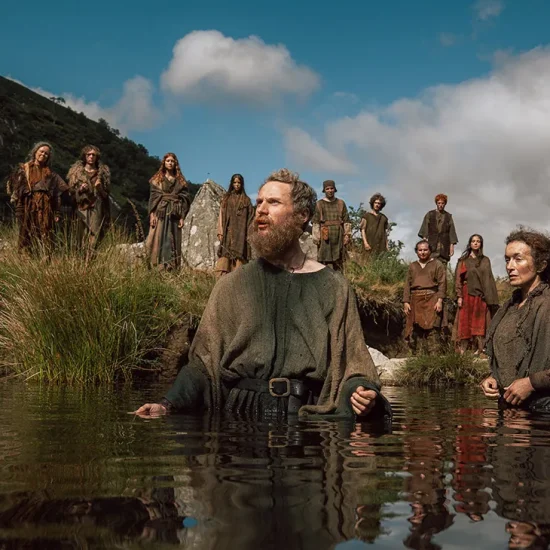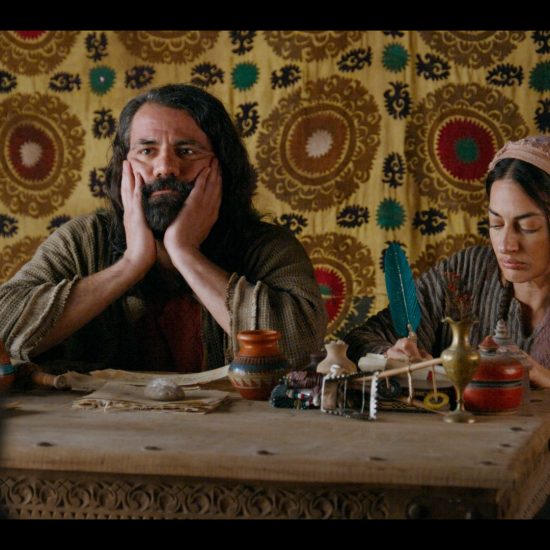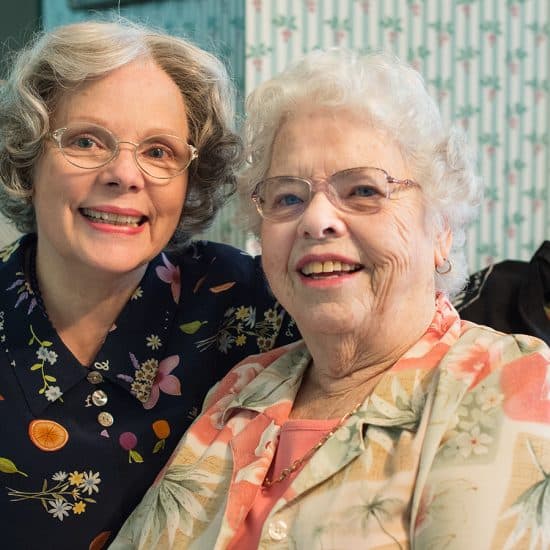(RNS) — A rabbi and priest walk into a bar because a lapsed Catholic has decided he should really try “Living Biblically” before he becomes a father.
That is the premise and the title of a new CBS sitcom that premiered Monday (Feb. 26). Based loosely on “The Year of Living Biblically: One Man’s Humble Quest to Follow the Bible as Literally as Possible,” the 2007 best-selling book by A.J. Jacobs, the show follows a journalist named Chip (Jay R. Ferguson, of “Mad Men” fame) as he tries to live by all the shalts and shalt nots of the Old Testament with the help of his local rabbi (David Krumholtz) and priest (Ian Gomez), who are best friends.
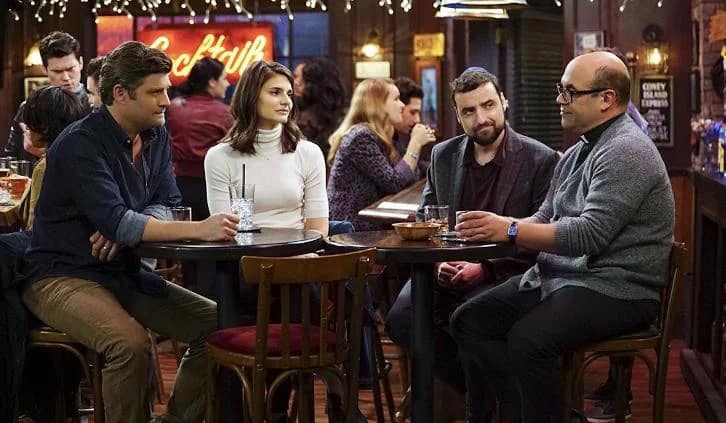 Jay R. Ferguson as Chip, from left, Lindsey Kraft as Leslie, David Krumholtz as Rabbi Gil and Ian Gomez as Father Gene on CBS’ “Living Biblically.” Photo by Sonja Flemming/CBSCBS hopes viewers will have the same response the show’s Father Gene has when Chip shows up in his confessional to announce his decision: uproarious laughter.
Jay R. Ferguson as Chip, from left, Lindsey Kraft as Leslie, David Krumholtz as Rabbi Gil and Ian Gomez as Father Gene on CBS’ “Living Biblically.” Photo by Sonja Flemming/CBSCBS hopes viewers will have the same response the show’s Father Gene has when Chip shows up in his confessional to announce his decision: uproarious laughter.
“Are you high?” the priest then asks.
The 13-episode season tackles lying (does God hate even a white lie?), adultery (to stone or not to stone?), honoring one’s parents (even if they’re bad parents?) and submitting (or not) to one’s husband. There’s even an episode where Chip and his atheist mother-in-law tackle faith versus science and wind up respecting each other.
 Patrick Walsh, executive producer of the CBS comedy “Living Biblically.” Photo by Cliff Lipson/CBS“It was definitely a challenge trying to figure out the right tone,” Patrick Walsh, executive producer and showrunner — the head honcho — said in a pre-premiere interview. “But the best part about it is we have our live studio audience who will tell us when we are in the right spot. I figure if our hearts are in the right place and no one in the writing room is trying to offend anyone — that would be a crazy thing to do — that hopefully that comes across.”
Patrick Walsh, executive producer of the CBS comedy “Living Biblically.” Photo by Cliff Lipson/CBS“It was definitely a challenge trying to figure out the right tone,” Patrick Walsh, executive producer and showrunner — the head honcho — said in a pre-premiere interview. “But the best part about it is we have our live studio audience who will tell us when we are in the right spot. I figure if our hearts are in the right place and no one in the writing room is trying to offend anyone — that would be a crazy thing to do — that hopefully that comes across.”
But that is by no means guaranteed. Religion on network television has a tortured past. For every success, like “Touched by an Angel,” which ran for nine seasons, there is an answering flop, like “Joan of Arcadia,” which despite an ardent fan base lasted just two seasons. Both series were also on CBS.
Then there’s the question of whether or not audiences will find religion — politics’ twin in derailing polite conversation — funny. Most successful network endeavors involving religion have been dramas. Cable has had the occasional comedy about religion, like HBO’s “Crashing,” but “The Jim Gaffigan Show,” which frequently highlighted the main character’s Catholicism, failed to find a home on a major network and then lasted just two seasons on TVLand.
The creative team behind “Living Biblically” knows these failures and successes intimately — among the team members are veterans of “Crashing,” “2 Broke Girls,” “Seinfeld and “Cheers.” To make the show’s rabbi and priest more “real” and to reduce the chances of offending religious viewers, the show’s writers brought in actual clergy as consultants.
“We have a priest and rabbi who are mentors to the show,” Walsh said. “Even though they had never met, they found so much common ground and were so funny and respectful of each other that that helped us write our characters.”
The Rev. Gregory Goethals, a Jesuit priest and president of Loyola High School in Los Angeles, is the Catholic half of the show’s mentors. He was recommended by his brother-in-law, Andy Ackerman, a longtime sitcom director who is working on “Living Biblically.”
“Andy is a good Catholic boy and he assured me it was going to be very respectful,” Goethals said recently. “I think they wanted to enter into this portrayal of religion and clergypeople that was both respectful and as true as possible as you can be in a half-hour sitcom.”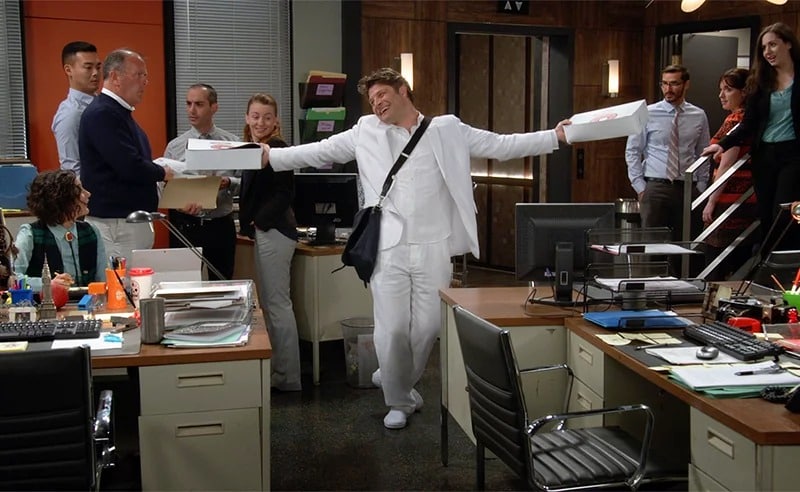 Jay R. Ferguson as Chip in the new CBS show “Living Biblically.” Photo by Michael Yarish/CBS
Jay R. Ferguson as Chip in the new CBS show “Living Biblically.” Photo by Michael Yarish/CBS
Rabbi Joshua Hoffman, Goethal’s Jewish counterpart as adviser to the show, agreed and added that he thinks the effort the writers took to make the show’s clergy characters more than stock figures will pay off.
“There are many elements of the rabbi as a character in the show that reveal him as much more vulnerable and realistic in the respect of being a religious figure,” Hoffman, a rabbi at Los Angeles’ Valley Beth Shalom synagogue, said. “He is the character that goes through a divorce in the show. That was a very powerful statement the writers made to show that rabbis could have challenges in their personal lives as well as their professional ones.”
Hoffman and Goethals read the scripts before they were filmed and raised a red flag on anything they thought might be in questionable taste or unrealistic. Goethals told the writers that if he were to visit a bar — one of the show’s main set pieces — he would loosen or even remove his clerical collar. And Hoffman flagged a joke given to the rabbi about a sandwich.
“There was a reference to the McDonald’s McRib sandwich,” which is made of pork, “and it was coming out of the rabbi’s mouth,” Hoffman said. “I just gently reminded them that a rabbi probably would not say that, even if he were a Reform rabbi and did not observe the laws of kashrut (kosher). They were responsive and they gave the line to someone else.”
Religion is having a minirevival in Hollywood, at least among the networks, where it has often been off-limits. Shows like “Young Sheldon” (CBS), “The Mick” (Fox) and “Andi Mack” (Disney) have all incorporated religion into recent episodes, and ABC’s new “Kevin (Probably) Saves the World,” an angel-driven “dramedy,” has been renewed for a second season.
CBS has also ordered a pilot for a potential new hourlong show called “God Friended Me,” in which “God” talks to characters via Facebook.
Walsh, whose father is a Catholic theology professor, is hopeful the show will prompt discussions, if not win accolades.
“I pitched the show because I don’t think there is a lot of (television) material that isn’t harshly critical of religious belief, like Bill Maher, or so heavy that it is off-putting, like ‘Left Behind,’” he said. “There is so much middle ground and I have so many friends who are religious and there is nothing that speaks to them. That was the basis of my pitch.”

